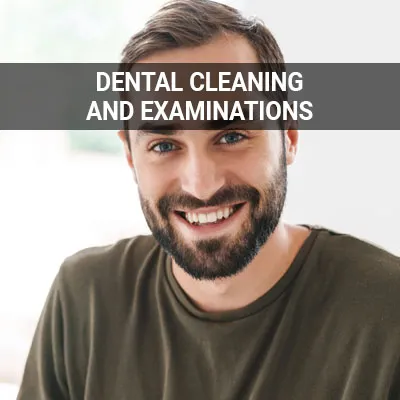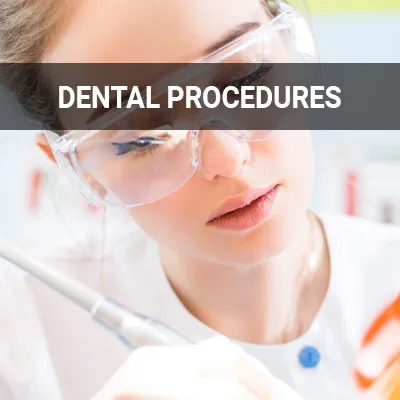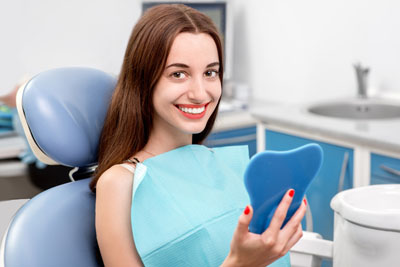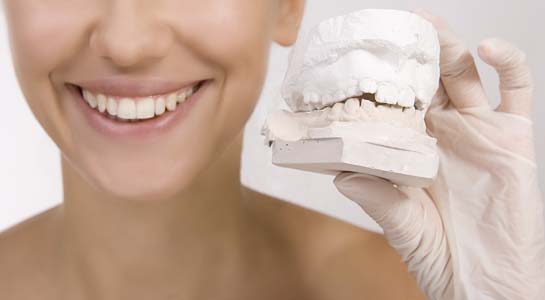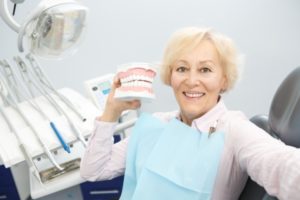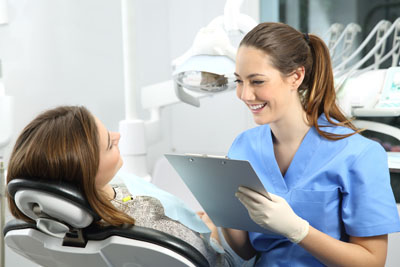Oral Hygiene Basics Los Angeles, CA
Beyond brushing your teeth twice a day, you might not think much about oral hygiene basics. However, the leading causes of tooth loss in older adults are gum disease and tooth decay, which are both caused by poor oral hygiene. Oral hygiene basics, such as proper tooth brushing and flossing, can help prevent these conditions and many other common dental problems.
Dental care is available at Dr. Robert B Tamaki, DDS in Los Angeles and the surrounding area. Contact us at (310) 402-0156 to schedule an appointment.
The Importance of Good Oral Hygiene
Maintaining good oral health is important for several reasons. First, oral health problems like gum disease can cause health problems in other parts of the body, including heart disease. It is especially important for pregnant women to take good care of their oral health: Gum disease has been linked to premature birth and low birth weight.
It is hard to overstate the importance of good oral hygiene. Even for those who brush and floss their teeth properly, it is worth reviewing oral hygiene habits occasionally to make sure they are doing everything properly. Good oral hygiene involves consistent daily habits and the right products and regular appointments with a dentist. In addition, some family members, such as children and the elderly, may need special help with their oral hygiene.
Most patients will require a regular dental cleaning at least once every six months. This cleaning removes any bacteria and tartar that has accumulated between the teeth and gums. Patients with gum disease may require a deep cleaning, also known as root scaling and planing, to remove larger amounts of bacteria and tartar buildup.
“Oral health problems such as gum disease can cause health problems in other parts of the body, including heart disease.”
Helping Family Members With Oral Hygiene
Since oral health can affect body health, it is important to teach children and others about oral hygiene. Someone should talk to family members about the importance of dental care. If any family member has anxiety about visiting the dentist, speak to the dental team about options to make the experience less intimidating. Either way, every member of the family should learn about oral hygiene and what they can do to take care of their smile.
Children and adults should have similar oral hygiene routines. There is a common misconception that a child's oral health care is different or perhaps not as important since their baby teeth will fall out. Even though baby teeth are replaced by larger adult teeth, they are still connected to the jaw bone in the same way. With children, this buildup on baby teeth can weaken their adult teeth for the rest of their lives, putting them at a higher risk of decay and disease later. This is why dental professionals recommend that children start visiting their dentist regularly from an early age.
No matter the age, everyone should prioritize oral health and establish an oral hygiene routine to keep themselves healthy. As they age, however, their smile may indeed have different needs. Along the way, they will have the help and guidance of our dental team, so they should be open with them and discuss their concerns.
“If any family member has anxiety about visiting the dentist, speak to the dental team about options to make the experience less intimidating.”
Helping Other Family Members With Oral Hygiene
Children and seniors have special oral hygiene needs. Individuals with young children or older adults in their care may need to help them with their dental hygiene.
Oral Hygiene for Kids
Children will need help brushing their teeth until they learn to do it on their own. Start cleaning their gums with a clean, wet cloth before they have teeth to get them used to the routine.
When a child's first teeth start to appear, brush them twice a day with a child-sized toothbrush with soft bristles. Start flossing as soon as the child has teeth in contact with each other. This usually occurs around the ages of two and three.
Once children can hold a toothbrush, encourage them to brush their teeth. Watch them to make sure their teeth are being cleaned properly. To make brushing more fun, let them pick out a toothbrush featuring their favorite cartoon character. Make it into a fun family activity by brushing with them and playing a song.
Continue to supervise the brushing until they have adopted good oral hygiene habits.
Oral Care for Older Adults
Older adults are more likely to have special oral hygiene needs. According to the CDC, many seniors are more likely to have untreated tooth decay or gum disease. Several adults over the age of 65 have also experienced tooth loss.
Older adults are also likely to take multiple prescription and over-the-counter medications, increasing the likelihood of dry mouth. Dry mouth can increase the risk of tooth decay. Encourage older adults to brush their teeth regularly, drink plenty of water, and avoid alcohol, which can contribute to dehydration.
Older adults may also benefit from adding a fluoride rinse to their oral care routine to combat tooth decay. Adults with dentures may also need products designed specifically for denture care. For example, tartar can build up on dentures just as it does on teeth. Denture cleanser tablets are designed to keep dentures free of odor, stains, and bacteria, and many are safe for overnight soaking.
“Children and seniors have special oral hygiene needs.”
Check out what others are saying about our dental services on Yelp: Oral Hygiene Basics in Los Angeles, CA
How to Select a Mouthwash
Mouthwash is optional and should not be used in place of brushing or flossing. But a good mouthwash can help improve oral health in several ways: It can reduce the amount of acid in the mouth, help kill bacteria that contribute to bad breath, and increase fluoridation — all of which help prevent tooth decay.
Make sure to choose an ADA-approved mouthwash. Approved brands include ACT Anticavity Fluoride Rinse, CloSYS Fluoride Rinse, Colgate Phos-Flur Ortho Defense, and Hello Kids Fluoride Rinse. The dentist may have additional recommendations for mouth rinses.
Patients should also be sure to look for the ADA stamp of approval when looking for toothpaste and denture products. Given the wide variety of options available, it can be more difficult to choose a toothbrush. Patients should choose a toothbrush with a head large enough to allow easy access to all surfaces of the teeth. Most patients should also choose a soft-bristled toothbrush for optimum comfort and safety.
“A good mouthwash can kill bacteria that contribute to bad breath and help prevent tooth decay.”
Questions Answered on This Page
Q. Why is it important to educate the family about oral healthcare?
Q. Why is good oral hygiene important?
Q. What family members may need extra help with their oral hygiene?
Q. Why should I use mouthwash?
Q. What are the best foods to eat to prevent tooth decay?
People Also Ask
Q. How often should someone have a dental checkup?
Q. Why is it important to find the right general dentist?
Q. What should patients do if they have sensitive teeth?
Q. What is the importance of having a routine dental checkup?
Q. Why are dental cleanings important?
Preventing Tooth Decay
In addition to regular brushing and flossing, other good habits that help prevent tooth decay include eating a healthy diet, drinking lots of water, and keeping toothbrushes clean.
Eat Foods That Promote Good Oral Health
Some foods can help clean teeth and fight plaque buildup. For example, fiber-rich fruits and vegetables can help keep teeth and gums clean. They also help increase the flow of saliva, which is important for washing away bacteria. In addition, saliva helps reduce the effects of the acids that attack teeth. It also contains trace amounts of the minerals calcium and phosphate, which can help restore areas of the teeth that have been damaged by acid.
Calcium-rich foods such as cheese and other dairy products can also help restore minerals into teeth. Also, drink black and green tea, as these contain compounds that inhibit the growth of bacteria in the mouth. Chewing sugarless gum can also help increase saliva production and help remove food particles from between teeth.
Keep Toothbrushes Clean
When finished brushing, rinse any residue off of the toothbrush. Set the toothbrush upright and allow it to air-dry. Keeping the toothbrush in a cabinet or enclosed container can promote bacteria growth. Replace the toothbrush every three months. Replace it sooner if the bristles become bent or frayed. If the bristles are bent, it could mean that the brushing is too hard.
Do not share a toothbrush with anyone. While sharing the toothbrush of a significant other might seem as harmless as kissing, health-wise, the two are very different. When kissing, it is mostly saliva that is shared. However, when sharing a toothbrush, bacteria and viruses from the other person are introduced into the bloodstream. This can be harmful to overall health, especially if the other person has gingivitis or gum disease.
“Limiting the consumption of sugary foods and drinks can help prevent tooth decay.”
Frequently Asked Questions
Q. Why are regular dental visits important?
A. Regular dental checkups can help identify minor dental issues before they become more serious. Treatment is likely to be simpler when problems are caught early. For example, when tooth decay and gum disease are treated early, they can often be reversed before significant tooth damage occurs. Untreated gum disease and tooth decay can lead to tooth loss and other major problems.
Q. Do I still need to see a dentist if I'm not having any problems?
A. Yes. Even if you are not experiencing any symptoms, you can still have dental issues such as tartar buildup and tooth decay. A dentist will be able to identify these issues before they become more serious.
Q. What are some signs that I should see a dentist?
A. If you experience swollen or sensitive gums, bad breath, pain or swelling in your mouth, difficulty chewing, or sensitivity to hot or cold foods, contact a dentist. These symptoms may be an indication of something more serious.
Q. Why are dental X-rays necessary?
A. Dental X-rays help dentists see tooth problems, including cracks and tooth decay, that are not visible to the naked eye. Expect to have X-rays taken if you have not been to the dentist in a while. Your dentist will take as few X-rays as possible to limit your radiation exposure. Let your dentist know if you are pregnant or may be pregnant, as pregnant women should not have X-rays taken.
Q. Is fluoride necessary for teeth?
A. Fluoride strengthens teeth while preventing decay. The American Dental Association (ADA), the American Academy of Pediatrics (AAP), and the Centers for Disease Control and Prevention (CDC) alike agree that children should use fluoride toothpaste for brushing. It also benefits adults.
Dental Terminology
Call Us Today
Before scheduling an appointment, be sure to make notes of any current at-home oral hygiene routines to be able to talk to the dental team about how to improve them. Scheduling an appointment and following through with dental checkups is a great start to a lifetime of healthy smiles.
When scheduling a dental appointment, take this time to make the dental team aware of any concerns and tell them if they need to take any steps to make the experience more enjoyable. To schedule an appointment, call us at 310-402-0156 today!
Helpful Related Links
- American Dental Association (ADA). Glossary of Dental Clinical Terms. 2024
- American Academy of Cosmetic Dentistry® (AACD). Home Page. 2024
- WebMD. WebMD’s Oral Care Guide. 2024
About our business, license, and website security
- Dr. Robert B Tamaki, DDS was established in 1985.
- We accept the following payment methods: Cash, CareCredit, Check, MasterCard, and Visa
- We serve patients from the following counties: Los Angeles County
- We serve patients from the following cities: Los Angeles, Santa Monica, Venice, Marina Del Rey, Redondo Beach, Hermosa Beach, Manhattan Beach, and Westchester
- CA (License #DDO-33386). View License Information and Specifics
- National Provider Identifier Database (1568559011). View NPI Registry Information
- Healthgrades. View Background Information and Reviews
- Norton Safe Web. View Details
- Trend Micro Site Safety Center. View Details
Back to top of Oral Hygiene Basics




